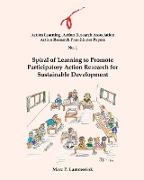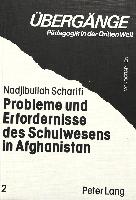Action Research Practitioner Papers No. 1 Spiral of Learning to Promote Participatory Action Research for Sustainable Development
BücherAngebote / Angebote:
Practitioners in development often fail to relate their expert knowledge to the logic, knowledge, and experiences of local people. Local people's ways of seeing contain many ingredients for change. Local people are the key to development, and should therefore actively participate in the change process, and not just be seen as recipients. Thus, a major challenge for professionals is to discover, with local people, clues that can help to build a more sustainable environment, to promote and build resilience, to better understand clashes between power groups/cultures and to embrace new perspectives and values.
The Spiral of Learning approach aims at augmenting professional competence on the topics at hand by refining their knowledge and skills, but more importantly by questioning their taken-for-granted assumptions, values and beliefs and bringing them to the surface, by embracing error, by changing their attitudes, by raising awareness and transforming deeply held perspectives of the world in which they work and act, and finally, by gaining self-respect and confidence.
During the learning process, ethical issues are challenged: ethics in learning but also in community participation and research with local people. Power issues are part and parcel of the reflections. Furthermore, 'learning how to learn' is involved through regular reflecting on both the process and the content.
The Spiral of Learning differs from many learning approaches in doing unique work, moving from non-participatory to participatory learning focusing on the participant's lived experience and how this worked out in specific cases. The process followed in the Learning Spiral does not impose any participatory methodology. Underlying principles of this approach are Experiential Learning and Popular Education. Experience is seen as an important source of learning.
In this Practitioner Paper, I will explain and show by means of examples how to achieve the implementation of participatory methodologies in the field in a participative way.
I give two examples of programmes designed to encourage and mentor professionals in using participatory approaches and Action Research for sustainable development.
Folgt in ca. 10 Arbeitstagen




